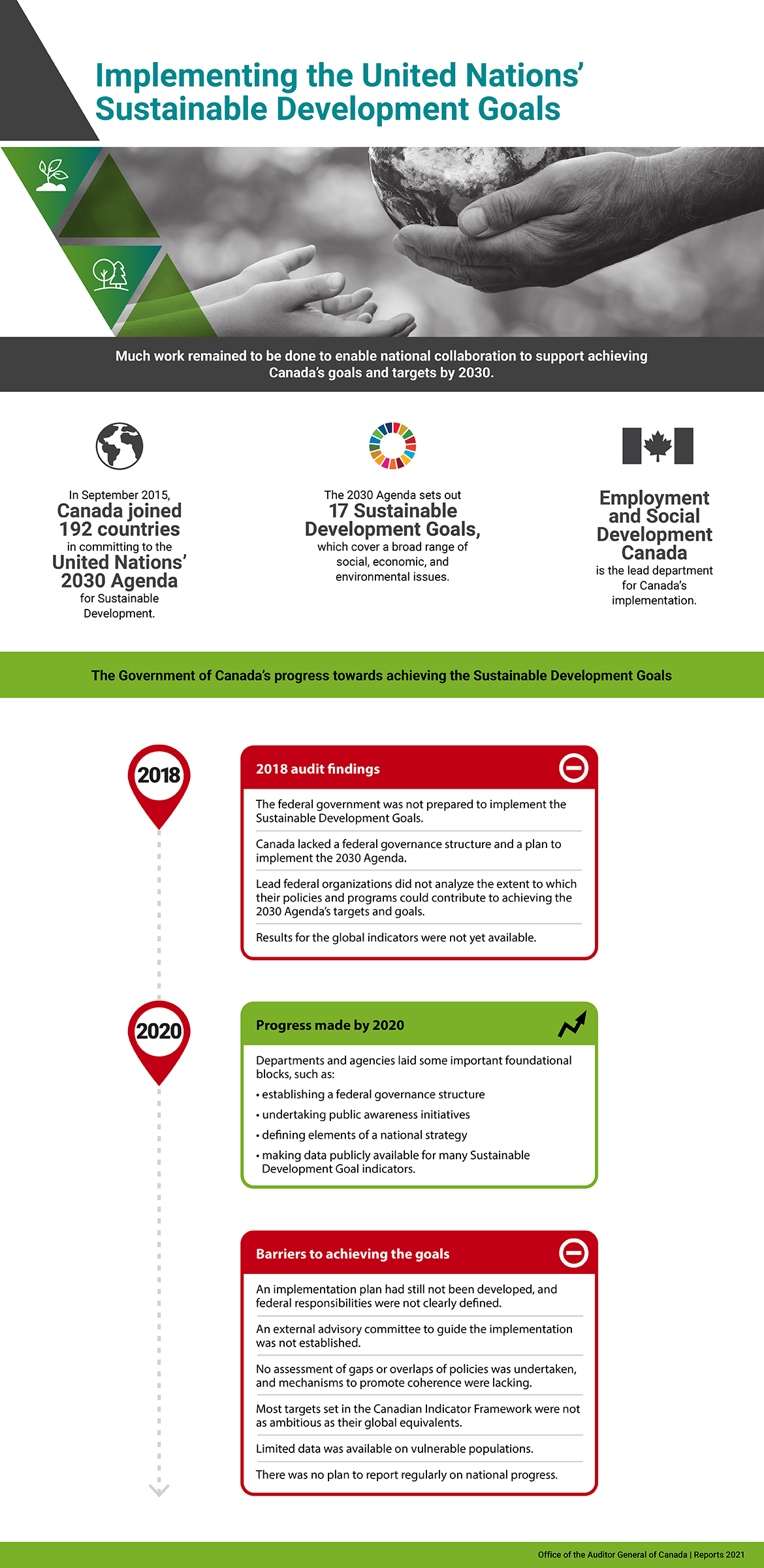Report 1—Implementing the United Nations’ Sustainable Development Goals—Infographic

Text version
This infographic presents findings from the audit on implementing the United Nations’ Sustainable Development Goals.
The audit found that much work remained to be done to enable national collaboration to support achieving Canada’s goals and targets by 2030.
Canada’s commitment to the United Nations’ 2030 Agenda for Sustainable Development
- In September 2015, Canada joined 192 countries in committing to the United Nations’ 2030 Agenda for Sustainable Development.
- The 2030 Agenda sets out 17 Sustainable Development Goals, which cover a broad range of social, economic, and environmental issues.
- Employment and Social Development Canada is the lead department for Canada’s implementation.
2018 audit findings on the Government of Canada’s progress towards achieving the Sustainable Development Goals
- The federal government was not prepared to implement the Sustainable Development Goals.
- Canada lacked a federal governance structure and a plan to implement the 2030 Agenda.
- Lead federal organizations did not analyze the extent to which their policies and programs could contribute to achieving the 2030 Agenda’s targets and goals.
- Results for the global indicators were not yet available.
Progress made by 2020 towards achieving the goals
Departments and agencies laid some important foundational blocks, such as
- establishing a federal governance structure
- undertaking public awareness initiatives
- defining elements of a national strategy
- making data publicly available for many Sustainable Development Goal indicators
Barriers to achieving the goals
- An implementation plan had still not been developed, and federal responsibilities were not clearly defined.
- An external advisory committee to guide the implementation was not established.
- No assessment of gaps or overlaps of policies was undertaken, and mechanisms to promote coherence were lacking.
- Most targets set in the Canadian Indicator Framework were not as ambitious as their global equivalents.
- Limited data was available on vulnerable populations.
- There was no plan to report regularly on national progress.